In my spring service this year, I've gone done the brake fluid science/testing rabbit hole. This "ITEQ" tester was quite inexpensive ($12 CAD - https://www.amazon.ca/gp/product/B076SC377J/?tag=atomicindus04-20 ) and brake tester accuracy has been questioned online a lot. Turns out it works quite well. Just make sure you test 3-4 times and assume the worst result is the accurate one. It looks to be more accurate as water content gets to 2%.
I used some DOT 4 ATE fluid as my baseline, and added water to a 100ml sample in 1ml increments, stirring it for a 30-45 seconds each time. It's interesting to see how the water mixes right in, which is apparently the idea with brake fluid. It isolates water basically from causing corrosion in the system. This hydroscopic nature is part of the design spec.
I tested the existing fluid in our 2003 Honda (maybe 2-3 year old DOT 3) and 2018 LEAF (likely OEM fill, 4 years old) and both came in at under 1% water content with this tester. I'm converting the vehicles over to Bosch 5.1 on this round of fluid flushes. I figure every 2-3 years will ensure the fluid is both "dry" and that the anti-corrosion package stays active. More on that in the next post.
The images are self explanatory, starting with the DOT 4 fluid I had on hand for testing.
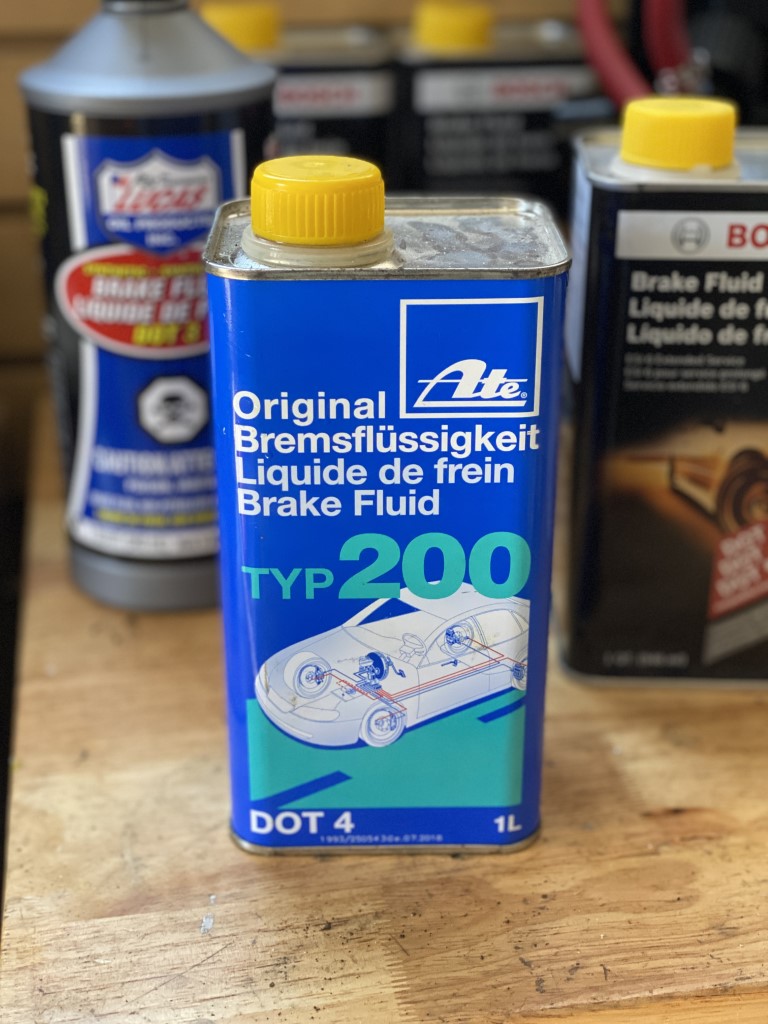
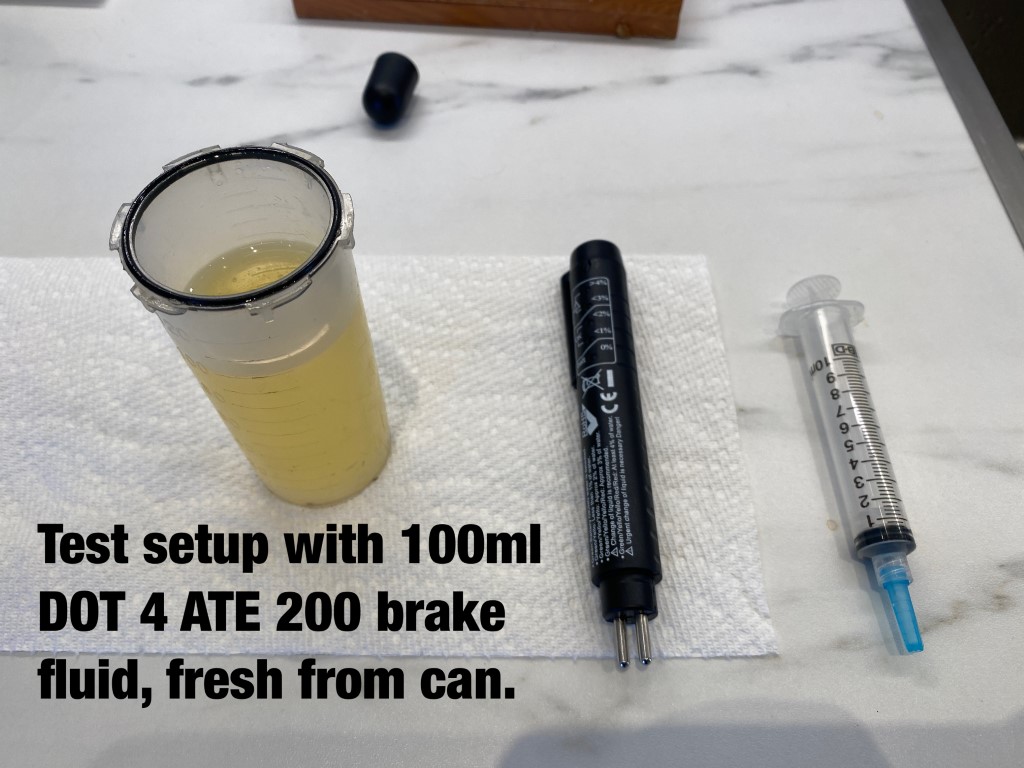
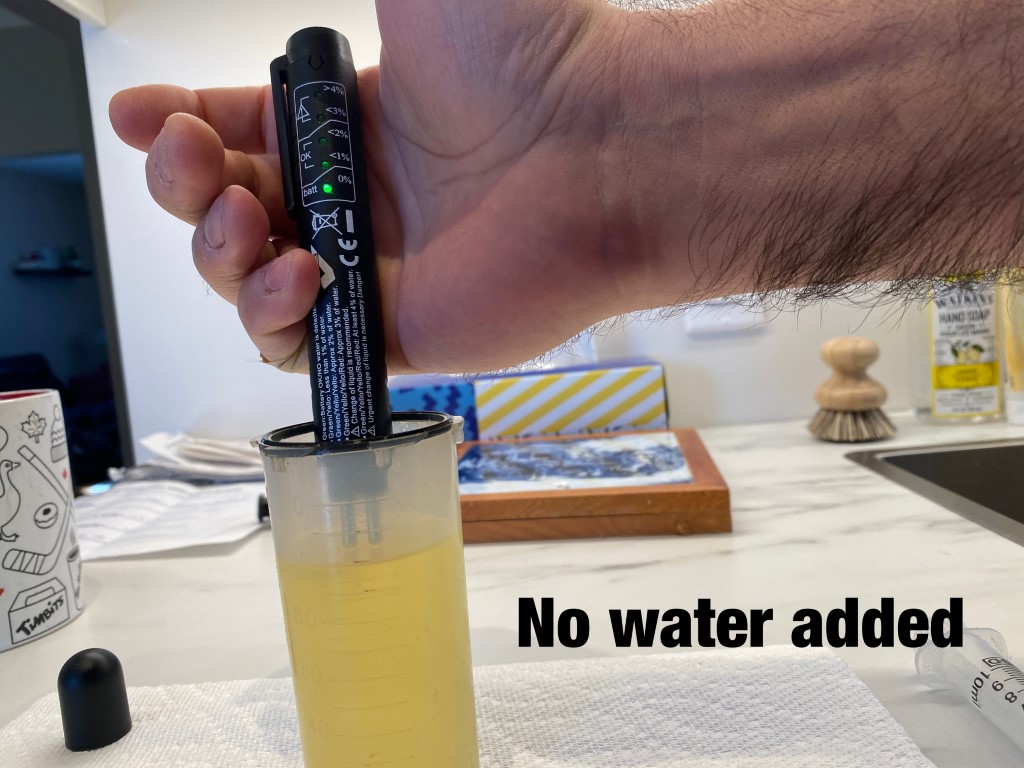
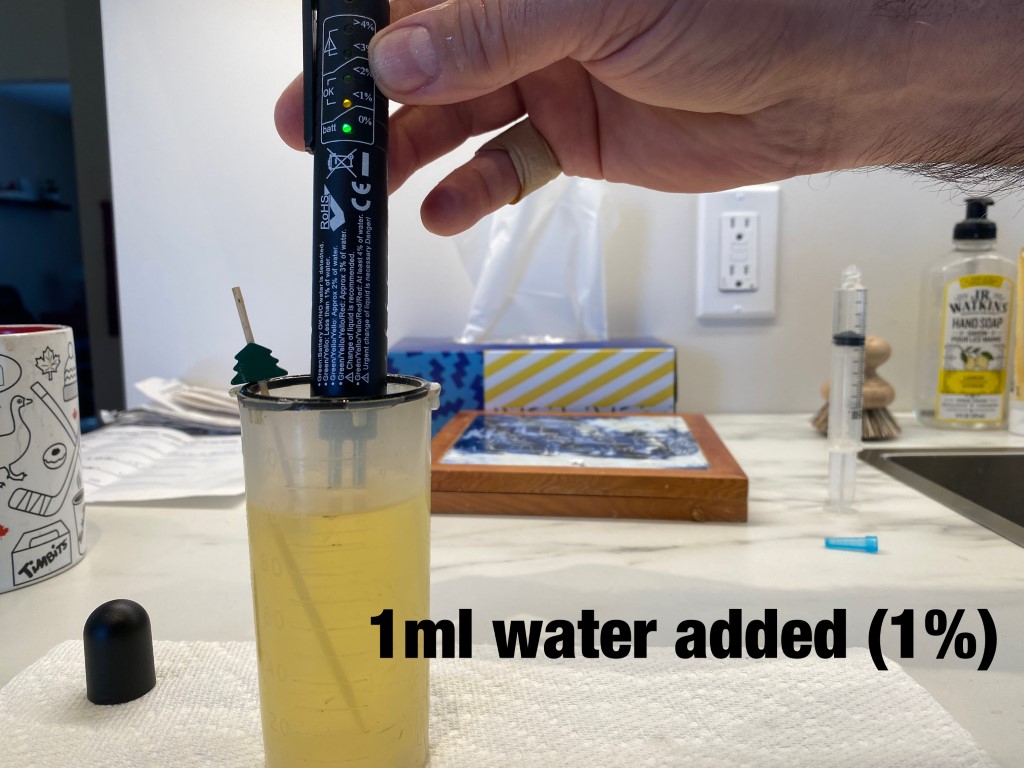
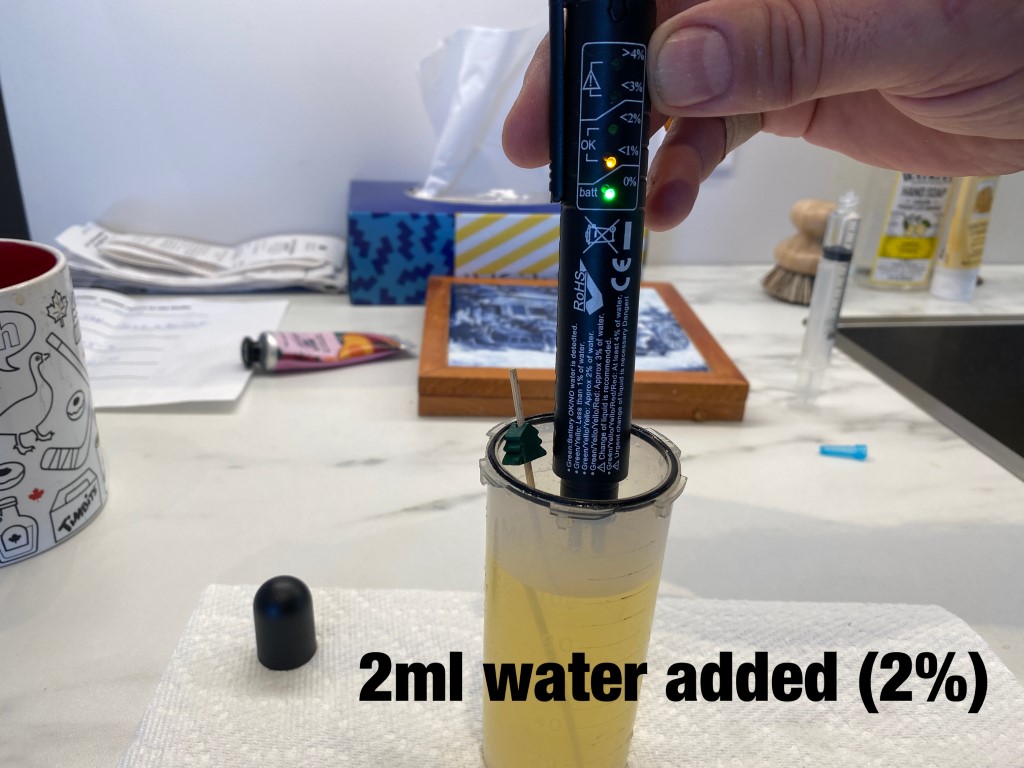
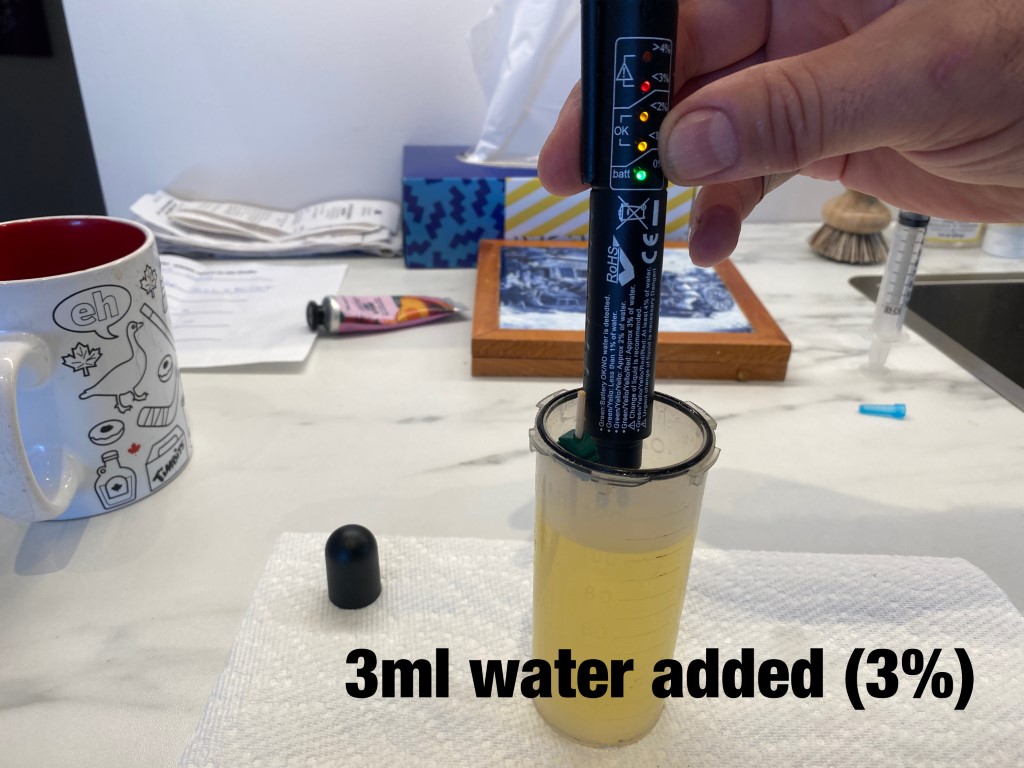
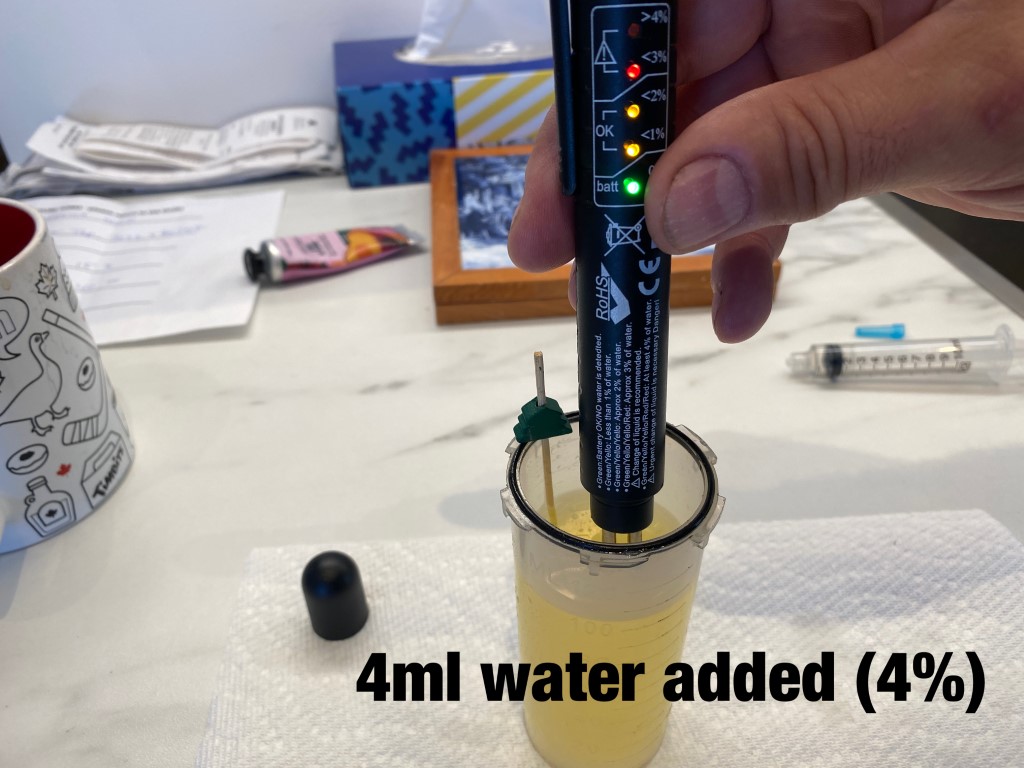
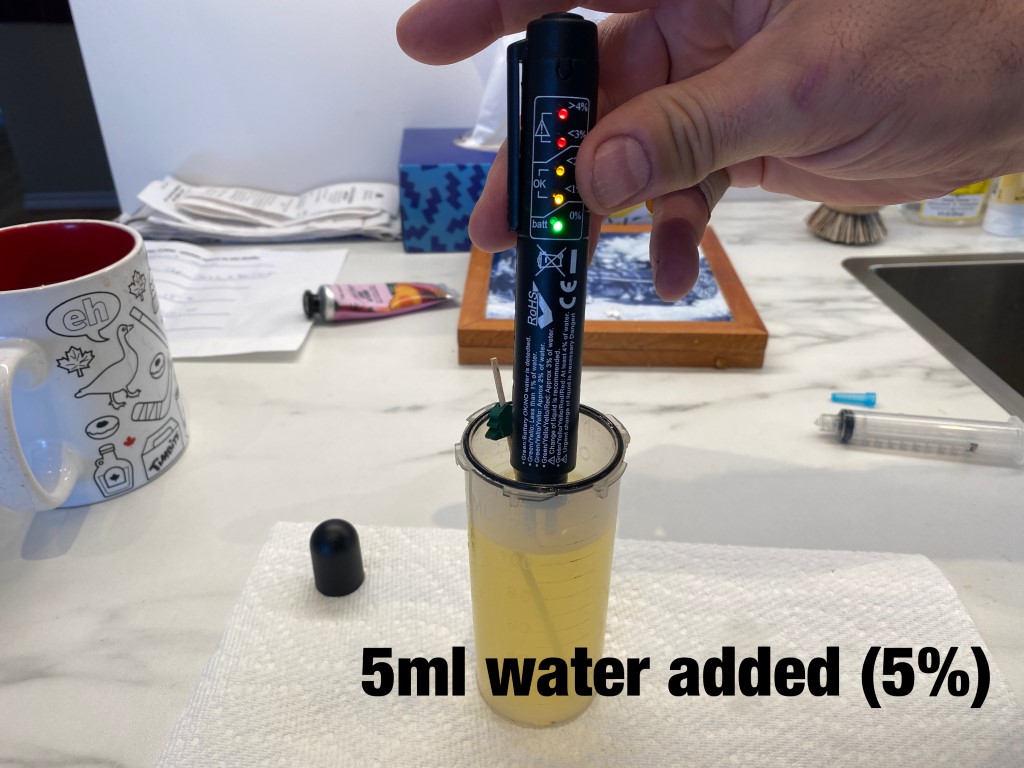
I used some DOT 4 ATE fluid as my baseline, and added water to a 100ml sample in 1ml increments, stirring it for a 30-45 seconds each time. It's interesting to see how the water mixes right in, which is apparently the idea with brake fluid. It isolates water basically from causing corrosion in the system. This hydroscopic nature is part of the design spec.
I tested the existing fluid in our 2003 Honda (maybe 2-3 year old DOT 3) and 2018 LEAF (likely OEM fill, 4 years old) and both came in at under 1% water content with this tester. I'm converting the vehicles over to Bosch 5.1 on this round of fluid flushes. I figure every 2-3 years will ensure the fluid is both "dry" and that the anti-corrosion package stays active. More on that in the next post.
The images are self explanatory, starting with the DOT 4 fluid I had on hand for testing.








